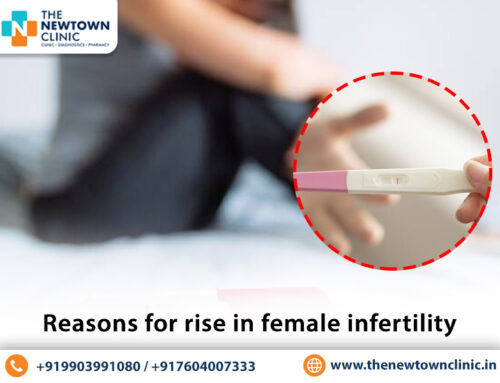Menstruation is a fundamental aspect of a woman’s reproductive system, marking a natural and crucial part of the menstrual cycle. Generally, occurring once a month, menstruation involves the shedding of the uterine lining. However, some individuals may experience more than one menstrual cycle within a month, which can be concerning and disruptive to daily life. Know what causes multiple periods in a month from the best gynecologist in Newtown.
What causes multiple periods in a month?
1. Hormonal Imbalances: Hormones, such as estrogen and progesterone, play a pivotal role in regulating the menstrual cycle. Fluctuations or imbalances in these hormone levels can disrupt the usual cycle and result in irregular periods or multiple periods within a month.
2. Polycystic Ovary Syndrome (PCOS): PCOS refers to the presence of cysts on one’s ovaries, higher levels of androgens (male hormones), and insulin resistance. These factors can cause hormonal imbalances, influencing the menstrual cycles as per a reputed obstetrician and gynecologist in Saltlake.
3. Uterine Fibroids: Uterine fibroids refer to non-cancerous growths that develop in the uterus, affecting many women. These growths can lead to heavy or prolonged menstrual bleeding and, in some cases, irregular periods. Based on their size and location, fibroids can disrupt the regularity of menstrual cycles, causing increased menstrual frequency.
4. Endometrial Hyperplasia: Endometrial hyperplasia involves the abnormal thickening of the uterine lining, often due to an imbalance between estrogen and progesterone levels. This condition can lead to irregular menstrual cycles and increased bleeding, resulting in multiple periods within a month.
5. Thyroid Disorders: Both hypothyroidism (underactive thyroid) and hyperthyroidism (overactive thyroid) can influence the menstrual cycle. The thyroid gland plays a key role in regulating hormonal balance within the body. When thyroid function is impaired, it can disrupt menstrual patterns.
6. Stress: The intricate interplay between the brain, hormones, and reproductive organs can be disrupted by persistent stress, leading to irregular periods or more frequent menstrual cycles. The hypothalamic-pituitary-ovarian (HPO) axis, a key component of this interplay, can be particularly affected.
7. Pelvic Inflammatory Disease (PID): Pelvic inflammatory disease is an infection resulting from sexually transmitted infections or STIs. PID can cause inflammation and infection in the pelvic region, disrupting the normal menstrual cycle and potentially leading to irregular or occasional periods.
8. Perimenopause: Perimenopause is the transitional phase leading to menopause, marked by hormonal fluctuations and irregular menstrual cycles. During this phase, estrogen levels decline, affecting the menstrual cycle and potentially causing more frequent periods.
If you are facing irregular menstrual cycles or noticing a change in your menstrual patterns, it is crucial to consult a gynecologist. Proper diagnosis and timely medical intervention can help identify the root cause and manage any potential health concerns related to menstrual irregularities.







